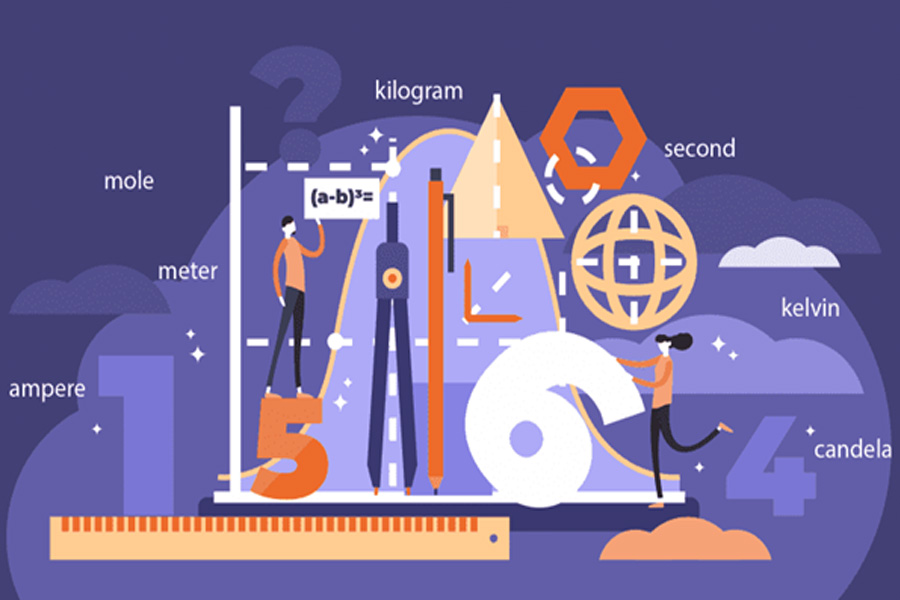In the world of physics, units and measurements act like the language we use to make sense of the physical world around us. For students getting ready for challenging exams like NEET and IIT-JEE, understanding units and measurements really well is super important. This blog will break down why they matter so much, how they’re used, and some easy ways to get really good at them for the exams.

Standardization: Units provide a standardized way to express physical quantities, ensuring consistency and uniformity in communication across scientific disciplines and international borders.
Precision and Accuracy: Measurements allow us to quantify physical quantities with precision and accuracy, enabling scientists and engineers to conduct experiments, analyse data, and draw meaningful conclusions.
Fundamental to Physics: Units and measurements are fundamental to all branches of physics, serving as the foundation upon which theories, laws, and equations are built. Without proper units and measurements, it would be impossible to formulate and validate scientific principles.
Application in Problem Solving: In competitive exams like NEET and IIT JEE, questions often require candidates to apply their knowledge of units and measurements to solve numerical problems, analyse experimental data, and interpret results accurately.
Real-World Relevance: Units and measurements aren’t just things we learn in school; they’re tools we use in everyday life, like in building things, treating patients, making technology work, and understanding the environment. Having a good handle on units and measurements isn’t just about passing exams; it’s about being able to solve real problems and come up with new ideas that make a difference in the world.
Key Concepts in Units and Measurements:
SI Units: The International System of Units (SI) provides a set of standard units for measuring physical quantities such as length (meter), mass (kilogram), time (second), and temperature (kelvin). Familiarity with SI units is essential for consistent and precise communication in physics.
Dimensional Analysis: Dimensional analysis involves analysing the dimensions (e.g., length, mass, time) of physical quantities and their units to check the consistency of equations, derive relationships between variables, and convert units.
Significant Figures: Understanding significant figures is crucial for expressing the precision and uncertainty of measurements. It involves identifying the number of digits in a measured quantity that are reliable and meaningful.
Error Analysis: Error analysis involves quantifying and minimizing uncertainties in measurements, considering factors such as systematic errors, random errors, and instrumental limitations. It discusses about absolute error, relative errors and percentage errors and also includes combination of errors. It is essential for interpreting experimental data accurately.
Strategies for Mastery:
Conceptual Understanding: Focus on understanding the concepts and principles underlying units and measurements, including the definitions of basic units, conversion factors, and rules for dimensional analysis.
Practice with Problems: Solve a variety of problems involving units and measurements, ranging from simple conversions to complex numerical problems. Practice is key to developing proficiency and problem-solving skills.
Use of Reference Books and Resources: Consult reference books, textbooks, and online resources to deepen your understanding of units and measurements, clarify doubts, and access additional practice problems and solutions.
Review and Revision: Regularly review and revise the concepts of units and measurements to reinforce your understanding and retention. Create summary notes, flashcards, or concept maps to aid in revision.
Mock Tests and Practice Papers: Take mock tests and practice papers designed specifically for NEET and IIT JEE exams to assess your knowledge and skills in units and measurements, identify areas for improvement, and familiarize yourself with the exam format and types of questions asked.
Units and measurements are the basics of physics, helping us measure and understand the world. For students preparing for exams like NEET and IIT JEE, knowing these basics well is super important. By getting why they matter, learning the key ideas, and studying smart, students can do better in exams and in physics overall.
Bin Haider Academy welcomes you for joining our IIT-JEE/NEET coaching in Dubai. We assure you of exemplary support and guidance toward your dream goal.
To join our IIT-JEE/NEET coaching, call us or visit us today.
